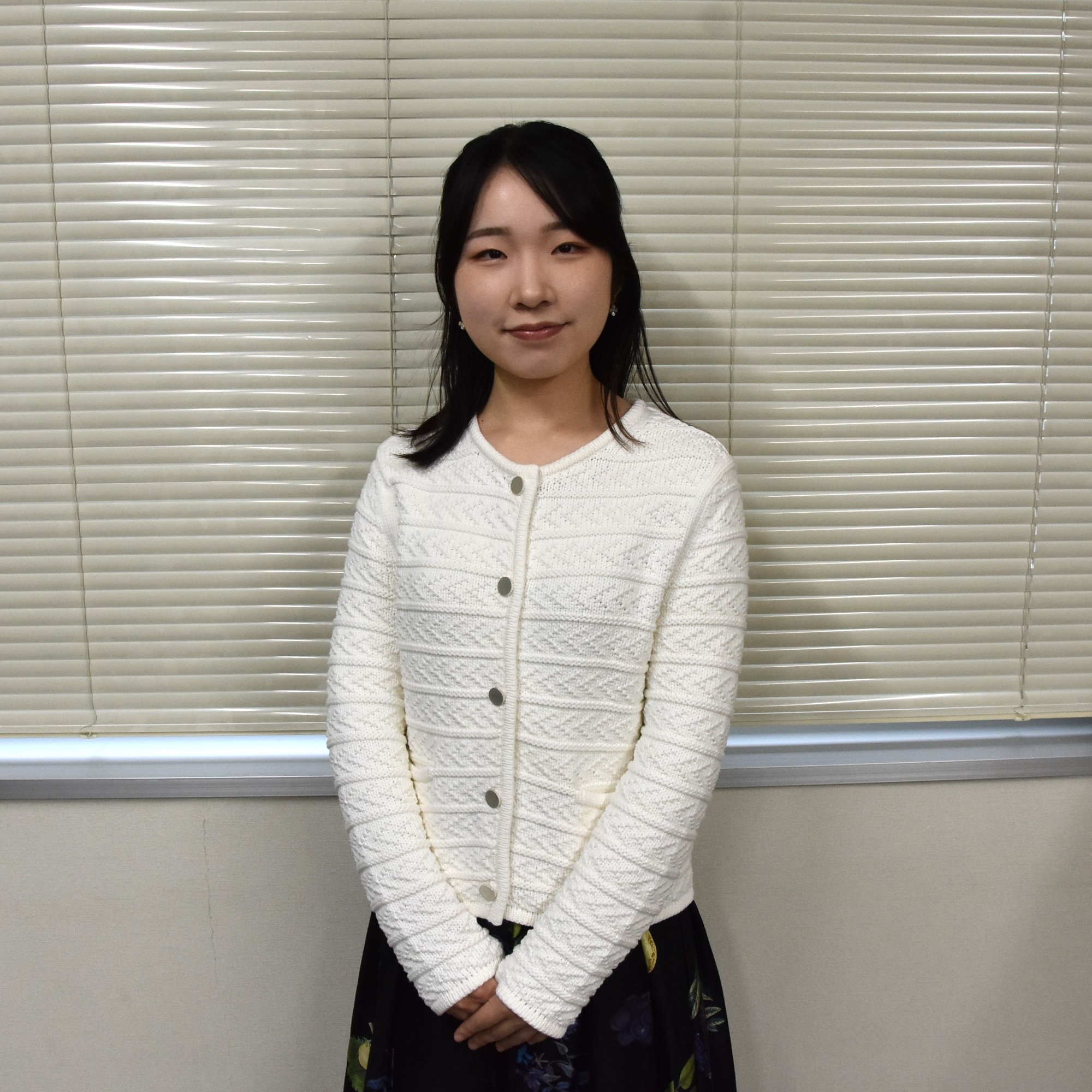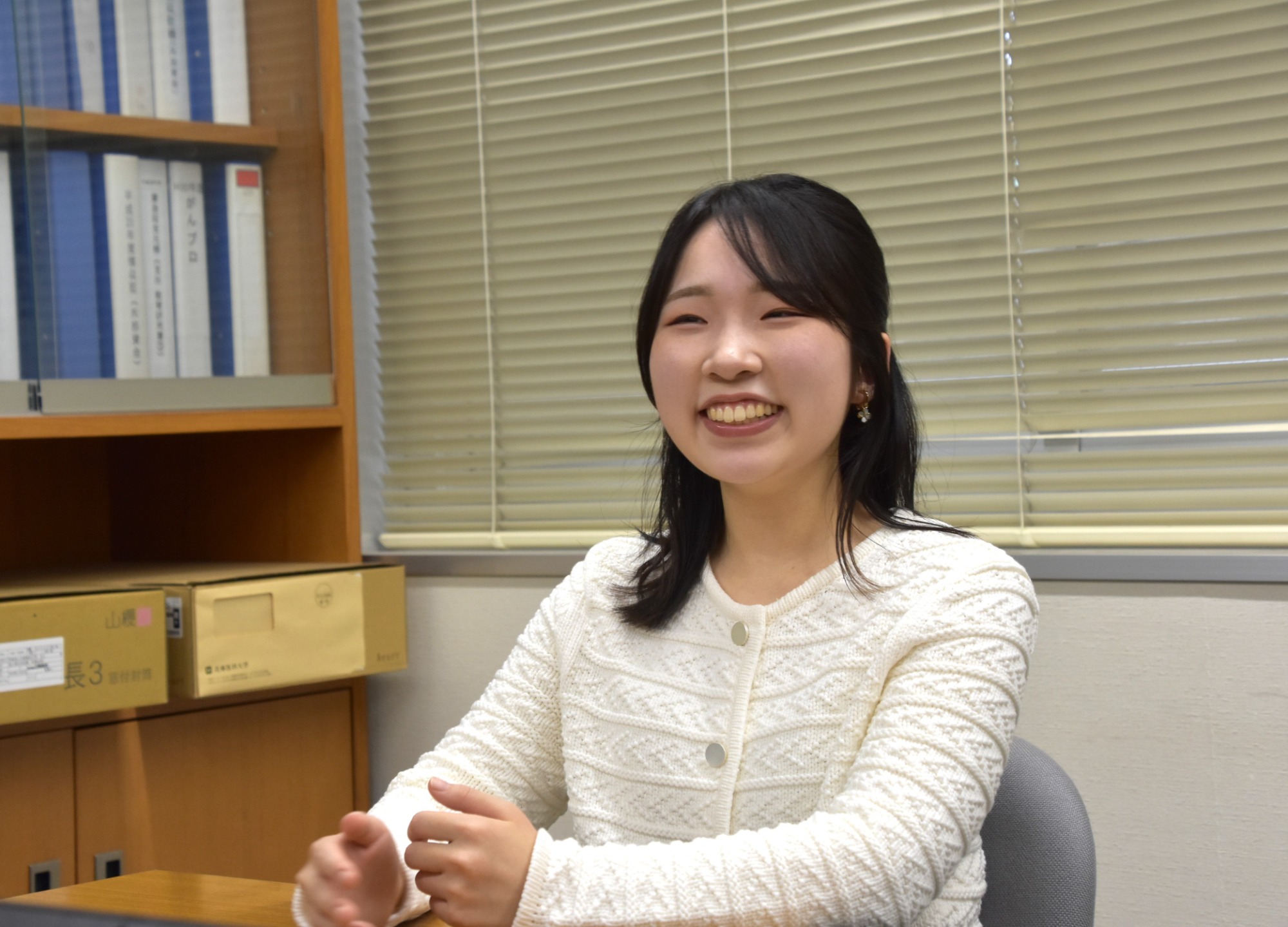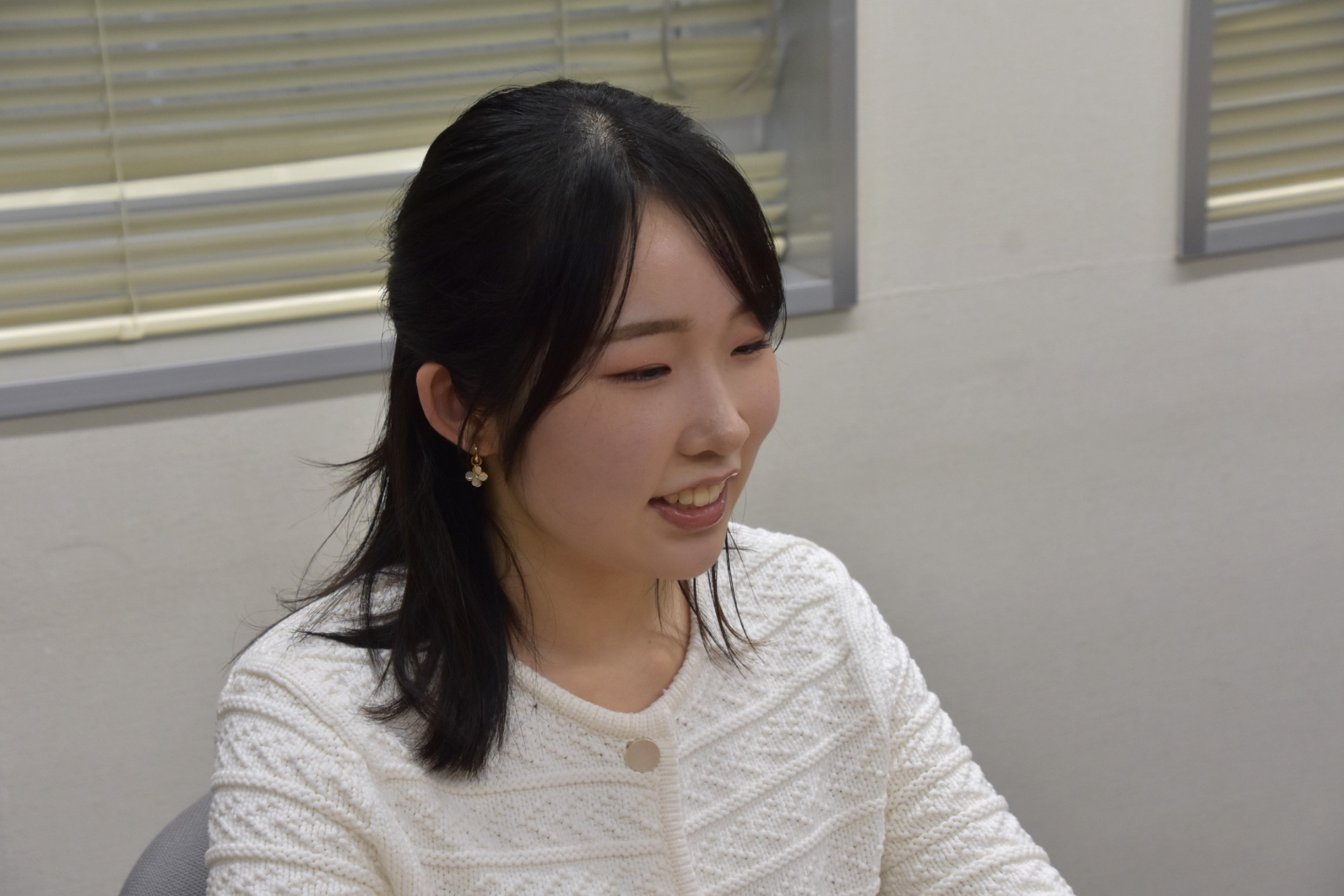Awards
[Student Achievements] Research Physician Course Student Wins Japan Neuroscience Society Domestic Travel Award
Naoko Masutani, a sixth-year School of Medicine student in the research physician course at our university, has been awarded the Japan Neuroscience Society's Domestic Travel Award. The Domestic Travel Award is aimed at supporting young researchers and is an award for undergraduate and graduate students who will present as first authors at the Japan Neuroscience Society. All applicants except for Naoko Masutani were graduate students or above, making this a tough situation for her to receive the award. We spoke to her about her thoughts on the award and her achievements to date.

Winning a Domestic Travel Award
Please share your honest thoughts about receiving this award.
I am honestly very happy. I never thought I would receive the award, so I am surprised and grateful. I am really happy that my research has been recognized.
Could you please tell us the specific details of your research?
The theme of this research is "Modification of respiratory rhythm by TRPA1(*1) in the pons using brainstem-spinal cord preparations isolated from newborn rats." In peripheral nerves, TRPA1 is involved in nociceptive pain, which is pain caused by inflammation such as cuts or irritation, and in hypoxia sensing, but the function of TRPA1 in the central nervous system is not yet well understood. Therefore, we focused on the parabrachial nucleus of the pons(*2), which is important as an inhalation-exhalation (I-E) phase switching system that controls respiratory rhythm. When the TRPA1 channel present there was stimulated, it showed a respiratory inhibitory effect, and by examining the inhibitory mechanism, we were able to elucidate for the first time that respiratory inhibition by TRPA1 is due to GABA(*3). In addition, when we investigated the function of TRPA1 in the central nervous system under a hypoxic environment, it was revealed that the TRPA1 channel was activated in a hypoxic environment, similar to its activity in the peripheral nerves, and affected the respiratory rhythm.
・(*1)TRPA1: A receptor activated by various stimuli, known as a channel that detects cold and pain in peripheral nerves.
・(*2) Pontine parabrachial nucleus*: A nerve nucleus located in the area of the brain called the pons.
*3 GABA: Abbreviation for Gamma-Amino Butyric Acid. One of the amino acids present in the body.
What do you think was most valuable about this research?
I think the novelty of our research was recognized because we added experiments in a low-oxygen environment to our previous research, which produced the interesting results I mentioned earlier.

Looking back on what I learned in the research physician course
You have been active in various fields, including research presentations, but what has been the most memorable experience for you?
The "Young Researchers Training Seminar" was held in Sendai last summer and was sponsored by the Japan Neuroscience Society. It was my first time giving an oral presentation in English, and although I was nervous, it was a very good experience. I remember that just before the seminar, my seniors rushed over to my lab and stayed at the university until late into the night to discuss things. In addition, a friend in the same lab who was good at English checked my English manuscript and helped me out a lot. It was very difficult because I had to prepare for exams and presentations at the same time, but now it's a fond memory.
◆You can view an interview about the activities of the "Young People Development School" from the link below.
[Student Achievements] The bold challenge of School of Medicine students in the research doctor course: Gaining experience and striving for greater heights
In a previous interview, you said that you were interested in becoming a cardiologist. Has that changed since then as you have gained various experiences?
I am still very interested in the field of cardiology. In the research doctor course, I was able to acquire various skills such as basic thinking, how to plan and proceed with experiments, and how to present. In addition to the research doctor course, I also wrote a paper in the clinical field in the clinical epidemiology department, and while writing the paper, I learned the relationship between basic and clinical research, and realized that clinical research is possible only because of basic research. Both basic and clinical research are very interesting, and I am not sure which one to choose. However, no matter which one I choose, I would like to continue research.
Please tell us about any experiences you have had that you think were only possible because of the research doctor course. Also, please tell us your impressions of what you learned in the research doctor course.
I think the strength of the research doctor course is the high degree of freedom. The teachers support me so that I can participate in domestic and international conferences. In addition, since I spend a lot of time facing research, I acquire the ability to think carefully about each and every event. I was not originally very good at making presentations in front of people. I still remember when my supervisor, Professor Arata, asked me, "Would you like to give an oral presentation?" about half a year after I entered the research doctor course. At that time, I did not know much about how to give a presentation, so it took a lot of courage for me to give an oral presentation. Then, as a result of taking the courage and taking a step forward, I no longer have any resistance to making presentations in front of people, and I have realized the fun of having someone know about my research. Through research, I have been able to interact with students and teachers from other universities, which was a lot of fun. I am glad that I entered the research doctor course.
Please give a message to those who are considering the research physician course.

The research doctor course at Hyogo Medical University offers a high degree of freedom and is an environment where you can try what you want to do. Of course, you can also balance your studies with club activities and hobbies. Even if you don't become a research doctor and go into clinical practice in the future, the scientific thinking, paper writing skills, and presentation skills you develop here will surely be useful somewhere. Please do jump in according to your interests.
Message to my supervisor, Professor Arata (Division of Physiology and Biophysics)
I was pushed around in a good way, and because of that I was able to try many different things. I'm grateful that I was able to jump into a variety of different environments. Thank you.
Message from my supervisor (Associate Professor Akiko Arata, Department of Physiology and Biological Functions)
I remember being very happy when she chose my lab after visiting various labs with Takasaka-san. I thought Masutani-san was a somewhat theoretical person who could clearly express her thoughts and opinions even when conducting research. I was impressed by how well she was able to convey the points she wanted to make in her head, and even when I added my own theories and explanations to her research, she was able to immediately understand what it meant, so after we discussed it, I felt that she had a rare ability to understand what I was explaining and to replace it with her own words. She seems to think that she is not good at presentations, but I think she is very good at putting what she has understood and absorbed into her own words and talking about it. In fact, I think presentations will become her specialty. I am happy to hear that she found research fun in the research doctor course, that she wants to continue doing some kind of research in the future, and that she feels that she has acquired something because she was here. I hope that in the future, when you face patients as a clinician and in order to help these people, you will continue to recognize that research is essential, and will continue to move forward with a spirit of research.
◆An interview with Yuki Takasaka, also a 6th year School of Medicine student in the research physician course, can be viewed at the link below.
[Student Achievements] From the Research Doctor Course to New Fields - Unrelenting Challenges